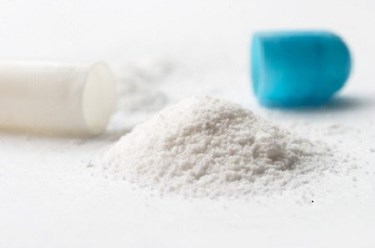Daily Aspirin Can Lower Deaths Due to Bowel and Stomach Cancers
By C. Rajan, contributing writer

An aspirin a day can keep cancer away, according to a large-scale review of available evidence.
The study published in the Annals of Oncology on August 5, found that taking aspirin every day for at least five years can reduce both the incidence of and deaths from bowel, stomach, and esophageal cancer by about 30-40 percent. They also found some less conclusive evidence that aspirin may lower deaths due to other types of cancer such as breast, prostate, and lung cancer.
Scientists examined about 200 studies evaluating the benefits and harms of taking aspirin, and concluded that the many benefits of aspirin far outweigh the risks. Aspirin, a well-known pain medication, is also known to lower the risks of heart attacks.
Professor Jack Cuzick of Queen Mary University of London who led the study said in a press release, "It has long been known that aspirin – one of the cheapest and most common drugs on the market – can protect against certain types of cancer. But until our study, where we analyzed all the available evidence, it was unclear whether the pros of taking aspirin outweighed the cons. “
It is to be noted that aspirin has serious side effects in some people, which include stomach bleeding and strokes. People who have blood disorders, stomach ulcers, hemophilia, and those who are regular smokers, drinkers, or are on blood-thinning medication are more likely to suffer these side-effects. Experts warn that medical advice must be taken before deciding on a daily regimen of aspirin.
Prof Cuzick, said: "Whilst there are some serious side-effects that can't be ignored, taking aspirin daily looks to be the most important thing we can do to reduce cancer after stopping smoking and reducing obesity, and will probably be much easier to implement."
It is not clear how aspirin protects against cancer. It is an anti-platelet drug, which inhibits blood clotting. It is possible that it prevents the platelets from protecting the cancer cells, or reduces inflammation. More research is required to understand the exact mechanism.
The researchers found that the benefits of taking aspirin weren't apparent until at least five years, and that the benefits continued even after people stopped taking it. Prof. Cuzick recommends that every healthy adult over the age of 50 should take a small dose (75mg) of aspirin for several years.
The study suggests that if every individual in UK between the ages of 50 to 65 took aspirin daily for ten years, 122,000 lives could be saved from both cancer and heart attacks. However, this is balanced against the estimated 18,000 deaths from side effects.
This study will provide yet another boost for aspirin sales. Despite being one of the lower priced drugs, the 'miracle drug' had annual global sales of over $1.7 billion dollars in 2012, including generics. Bayer Aspirin, the leading aspirin brand, had reported global sales of nearly 500 million euros in 2012.
